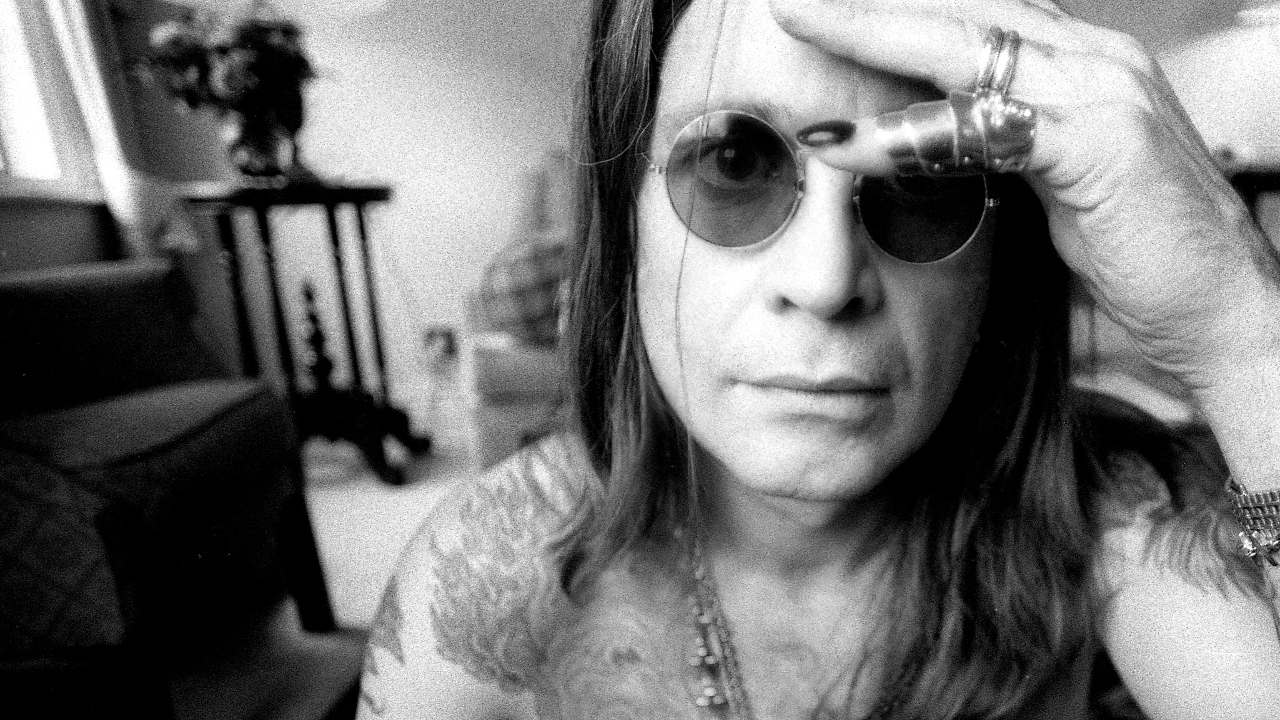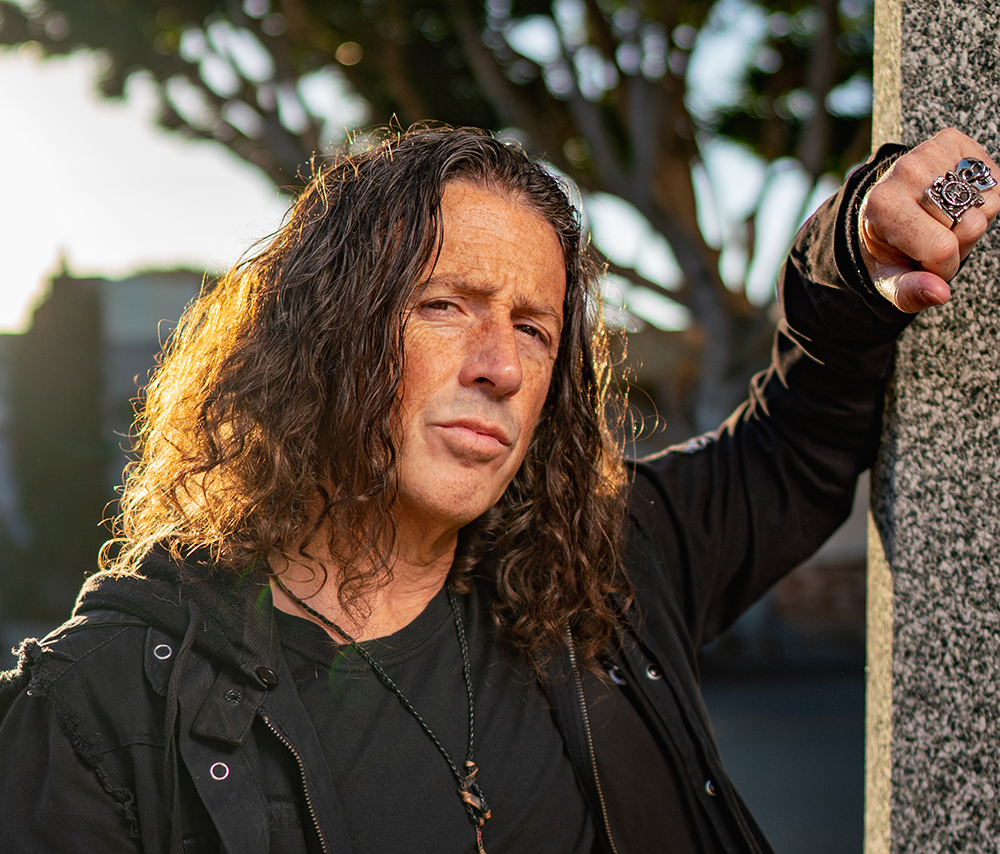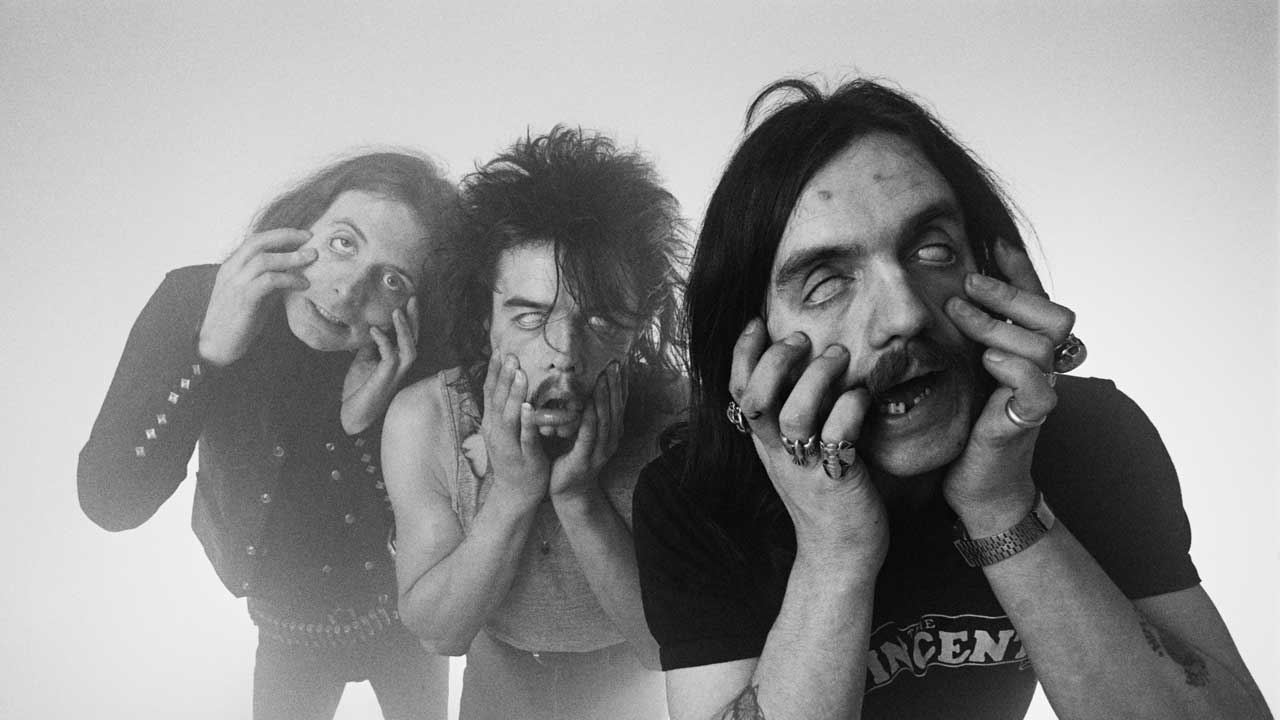“It was the most amazing thing. I couldn’t have written it better myself because it was just so perfectly me!" How Ozzy Osbourne produced his most emotional anthem with some inspiration from his wife Sharon - and a stunning assist from Lemmy
There wasn't a dry eye in the house the final time he played this classic live

Select the newsletters you’d like to receive. Then, add your email to sign up.
You are now subscribed
Your newsletter sign-up was successful
Want to add more newsletters?

Every Friday
Louder
Louder’s weekly newsletter is jam-packed with the team’s personal highlights from the last seven days, including features, breaking news, reviews and tons of juicy exclusives from the world of alternative music.

Every Friday
Classic Rock
The Classic Rock newsletter is an essential read for the discerning rock fan. Every week we bring you the news, reviews and the very best features and interviews from our extensive archive. Written by rock fans for rock fans.

Every Friday
Metal Hammer
For the last four decades Metal Hammer has been the world’s greatest metal magazine. Created by metalheads for metalheads, ‘Hammer takes you behind the scenes, closer to the action, and nearer to the bands that you love the most.

Every Friday
Prog
The Prog newsletter brings you the very best of Prog Magazine and our website, every Friday. We'll deliver you the very latest news from the Prog universe, informative features and archive material from Prog’s impressive vault.
By the dawn of the 90s, Ozzy Osbourne had already done the impossible - he’d survived being Ozzy. He’d been fired from Black Sabbath, reborn as a solo artist, arrested, hospitalised, mythologised, and written off more times than he could count. By all rational measures, he should’ve been a footnote by now, a cautionary tale of unchecked rockstar debauchery. Instead, he was gearing up for his sixth studio album, No More Tears, with a new guitarist, a sober head, and a renewed sense of purpose.
“It was a great time for me,” said Ozzy, speaking to Metal Hammer years later. “I had a point to make and it was a good album. That album was a resurrection, very well made.”
When Ozzy and his crew decamped to Los Angeles to start work on the album, the air around him was thick with change. Glam metal’s neon hangover was fading fast, and upstart grunge stalked the horizon. But Ozzy, ever the survivor, had a sharp instinct. “We knew we had to attack every song as if it was going to be played on the radio,” he said. “We were still at the end of the 80s glam rock thing and before Nirvana’s era came in. We knew we had to step up to the plate.”
He brought with him a shit-hot band of hired killers: Randy Castillo on drums and Bob Daisley on bass, though he’d be replaced by a young Mike Inez by the time the album’s promotional videos were cut. Finally, guitar duties went to a Jersey kid with the look of a lost Viking and the chops of a god - Zakk Wylde.
The mix proved electric and the sessions became drenched in equal parts inspiration and chaos. There were stink bombs, prank wars, and more bodily-function jokes than any platinum-selling operation should reasonably withstand. “There were shenanigans going on the whole time,” Zakk laughed, recalling the sessions in an interview with Metal Hammer. “It’s a miracle anything got done!”
But somewhere within the mayhem, they tapped into something profound, and cutting through it all was one particular idea that Ozzy just couldn’t shake — the primordial ooze of the track that would become Mama, I’m Coming Home.
“I had been walking around with the melody in my head for a couple of years but never got a chance to finish it until I was working with Zakk on the No More Tears album,” said Ozzy in the liner notes for his 1997 compilation, The Ozzman Cometh.
Sign up below to get the latest from Metal Hammer, plus exclusive special offers, direct to your inbox!
“We were living in this beat-down apartment in North Hollywood,” Zakk explained. “Ozzy came by one day and was like, ‘Sharon’s paying you, isn’t she?!’ So we sat down at the piano and started working. That’s where Mama I’m Coming Home was born. We changed it to guitar later, but it started right there on the piano.”
What he didn’t have, at that point, was lyrics. So he called in his longtime mate and fellow hellraiser, Lemmy Kilmister. “I’m good at starting lyrics, but I can’t finish them,” Osbourne told BBC Radio 2 in 2021. So he approached Lemmy with a cassette, some lyrics and a World War II book, expecting Lemmy to take at least a few days or a week to flesh out the lyrics.
Instead, Lemmy replied, “Come back in about four hours.” When Ozzy returned, Lemmy had not only knocked out lyrics to three songs, but he’d read the whole book. “I go, ‘You have written three sets of lyrics?’ He said, ‘Yeah … and that book was crap!’ I said, ‘What book?’ He says, ‘The book you gave me.’”
Ultimately, Lemmy contributed lyrics to several tracks — I Don’t Want To Change The World, Hellraiser, Desire, and, notably, Mama, I’m Coming Home.
Mama... wasn’t a typical Ozzy song. It wasn’t about demons or damnation. It was about love, regret, and the quiet ache of coming back to the only person who ever truly held him together. Its subject wasn’t really a mystery, either. The “Mama” wasn’t his mother; it was Sharon, the centrifugal force in his orbit.
“Mama, I’m Coming Home was always something I’d say on the phone to my wife near the end of a tour,” Ozzy explained.
“It was the most amazing thing,” Ozzy said. “I couldn’t have written it better myself because it was just so perfectly me, you know? [Lemmy] knew what I was trying to say.”
Indeed, Lemmy’s words captured all of it - the guilt, the exhaustion, the yearning for normalcy that Ozzy rarely allowed himself. Musically, Zakk’s arrangement is pure emotional architecture - tender, melodic verses giving way to a chorus that rips the heart wide open His solo isn’t flashy; it’s liquid soul.
By the time the final chorus swells, Ozzy isn’t the Prince of Darkness anymore. He’s just John Osbourne from Birmingham, trying to make it back through the front door.
When No More Tears dropped in September 1991, it didn’t just restore Ozzy’s commercial standing - it cemented his emotional legitimacy. The record was his best-sounding and most cohesive album since Diary Of A Madman. “Every time I’ve gone into the studio I’ve always wanted to do a better album than the last,” he said. “Sometimes it works, sometimes it doesn’t.”
This time, it did.
Mama, I’m Coming Home became his only solo Top 40 hit on the Billboard Hot 100, peaking at No. 28. It remains one of his most enduring tracks - the song that even non-metal fans know.
Lemmy, the eternal cynic, was proud of the result. In his autobiography, White Line Fever, he cracked, “I made more money out of writing those four songs for Ozzy than I made out of fifteen years of Motörhead – ludicrous, isn’t it!”
When Ozzy took the stage in Birmingham for Back to the Beginning on July 5, 2025 - his final live appearance - Mama, I’m Coming Home became the night’s emotional centre. Once again flanked by his proteges - Zakk Wylde on twelve-string acoustic and Mike Inez to his right - Ozzy stayed seated, his voice ragged but resolute, while drummer Tommy Clufetos powered the song with its familiar, defiant swing.
“Thank you from the bottom of my heart,” Ozzy told the crowd. “Here’s a song called Mama, I’m Coming Home.” As the first notes rang out, the stadium transformed. Every phone in the building was raised to the sky, torches glowing like a constellation. The cameras swept across faces wet with tears, people hugging, and singing along. They weren’t just witnessing this moment; they were carrying him through it.
As the song swelled to its crescendo, it felt as if the ancient forces of the Universe had conspired to converge everybody’s journey — Ozzy, his band, the audience and the millions of viewers across the globe — into this singular, timeless moment. When the last chord faded, the crowd stayed silent for a breath, suspended in that shared stillness.
More than thirty years later, Mama, I’m Coming Home still feels different from anything else Ozzy wrote — a rare glimpse beyond the stages and the myths, into the heart of a man who, after everything, just wanted to get back home.
Hailing from San Diego, California, Joe Daly is an award-winning music journalist with over thirty years experience. Since 2010, Joe has been a regular contributor for Metal Hammer, penning cover features, news stories, album reviews and other content. Joe also writes for Classic Rock, Bass Player, Men’s Health and Outburn magazines. He has served as Music Editor for several online outlets and he has been a contributor for SPIN, the BBC and a frequent guest on several podcasts. When he’s not serenading his neighbours with black metal, Joe enjoys playing hockey, beating on his bass and fawning over his dogs.
You must confirm your public display name before commenting
Please logout and then login again, you will then be prompted to enter your display name.


